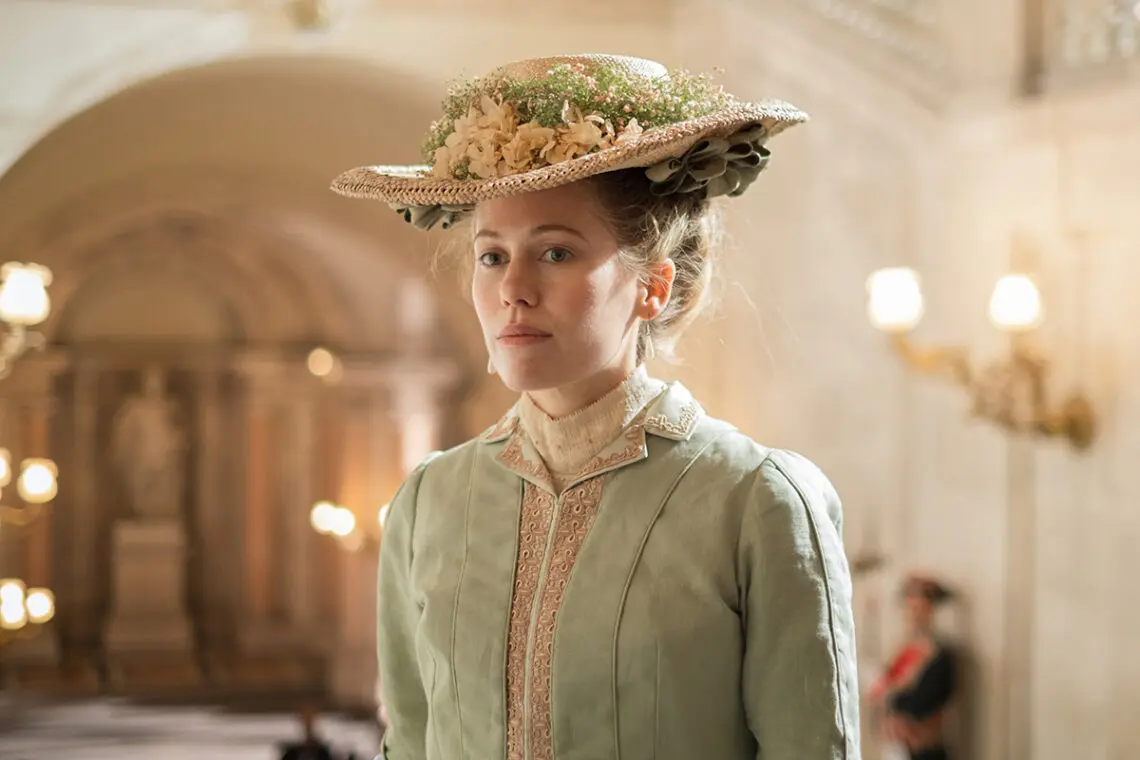Ena – a blossoming royal epic that captivates Mipcom
The biographical series “Ena – Queen Victoria Eugenia” emerged as a centerpiece at Mipcom’s Spain Country of Honor celebrations. This spellbinding narrative reintroduces audiences to Victoria Eugenie of Battenberg, the youngest granddaughter of Queen Victoria, as she embarks on her turbulent journey as Spain’s Queen.
A royal wedding marred by tragedy
As the series opener, viewers are transported to Madrid on May 31, 1906. The city is adorned in celebration for the wedding of Victoria Eugenie to Spain’s King Alfonso XIII at the majestic San Jerónimo Royal Monastery. The initial scenes radiate splendor as the newlyweds smile and wave from their carriage, drawing cheers from ecstatic crowds. Yet, this joyous moment is fleeting. As they journey towards Madrid’s historic Calle Mayor, an anarchist’s bomb shatters their bliss, leaving the couple unconscious and the audience gripped.
An authentic Spanish narrative
Created by Javier Olivares, known for “The Department of Time,” and directed by the talented Anaïs Pareto and Estel Díaz, “Ena” is a groundbreaking production by RTVE. It stakes its claim as Spain’s largest royal drama, diverging markedly from international comparisons such as “The Crown”. “Ena” isn’t content with mere drama; it weaves in light-hearted moments, making it a multifaceted portrayal of the era.
Light, love, and laughter
Episode 1 predominantly sets its stage a year before the infamous wedding, chronicling Alfonso’s courtship of Ena as a near-invincible romantic comedy. It captures their innocent flirtations and tender exchanges, like Alfonso’s heartfelt letters that spoke of dream-filled nights and longing mornings. Humor finds its place too, particularly in scenes featuring Alfonso’s snobbish mother, Maria Cristina. Her remarks to Spain’s Prime Minister, “You’re a Count, right? Then act as an innkeeper,” provide comic relief amidst the unfolding drama.
Anarchist undertones and historical foresight
The series doesn’t shy away from its thriller elements. Mateo Morral, disinherited by his father and inspired by Barcelona anarchist Francisco Ferrer, pledges to cause upheaval. This culminates in his catastrophic act during the royal wedding. Equally poignant are the historical premonitions. Alfonso’s advice to Ena to show more passion hints at their fragile acceptance by the public. His warning, “If they’re unhappy with us, they could get rid of us,” foreshadows their eventual exile in 1931 as Spain declared itself a Republic.
A resilient queen’s journey
Ena, initially introduced as a timid figure stemming from a family with a history of haemophilia, becomes a paragon of resilience. Her marriage to the notoriously unfaithful Alfonso XIII is characterized by perseverance through personal and national trials. From raising six children, including haemophilic sons, to braving the Spanish flu of 1918, two World Wars, and eventual exile – her story is one of enduring strength.
Queen Victoria’s influence and Ena’s upbringing are woven through reflective flashbacks. Ena remembers advice from the Queen: “Do not cry, Ena; nobody must know about your pain, and do not laugh; nobody should know about your emotions.” Such stoic guidance becomes a cornerstone of Ena’s personality as she navigates the treacherous waters of royal life. Her uncle, Edward VII, further predicts her unhappy future but encourages her to face it with dignity, warning her against returning to England defeated.
A quest for personal happiness
This ambitious series, a flagship production at Mipcom, navigates Ena’s relentless pursuit of happiness despite constant adversity. Each episode presents a unique cinematic experience, with varying styles and rhythms, reflecting the dynamic storytelling approach of its directors.
Kimberly Tell and Joan Amargós shine in their portrayals of Ena and Alfonso. Tell’s portrayal of Ena debunks common expectations, highlighting her choice to marry for love, not ambition. This nuanced depiction adds depth and authenticity to her character’s royal narrative.
Joan Amargós captures Alfonso XIII’s charm, drawing on historical anecdotes that even figures like Winston Churchill and Luis Buñuel found him endearing. His depiction emphasizes the complexity of Alfonso’s character – a spoiled yet charismatic ruler, whose actions often lacked foresight.
In episode 1, parallel narratives juxtapose wealth and destitution, highlighting the stark social disparities of the time. Scenes shift from Mateo Morral’s revolutionary dialogues in Paris to Ena’s bridal preparations, underscoring the tension between opulence and poverty.
Ena’s empathetic lens invites viewers to perceive the complexities of its principal characters, revealing their human vulnerabilities and noble endeavors. Ena’s proactive support for Spain’s Red Cross, recognized with a Nobel Peace Prize in 1917, exemplifies her enduring commitment to humanitarian causes beyond her royal obligations.
A powerful directorial vision
Discussing the directorial prowess of Anaïs Pareto and Estel Díaz, Tell emphasizes the distinctiveness of each episode: “It’s as if each episode is its own film, with a different style and rhythm.” This innovative approach ensures the series remains engaging and unpredictable, drawing the audience into its richly textured world.
“Ena – Queen Victoria Eugenia” stands as a testament to Spanish storytelling at its finest. This magnificent series not only illuminates a pivotal era in Spanish history but also resonates with universal themes of love, duty, and resilience.
Feel the royal intrigue and historical drama unfold by following this captivating series. Share your thoughts and stay tuned for more riveting insights into the world of television and cinema.

 Italian
Italian







